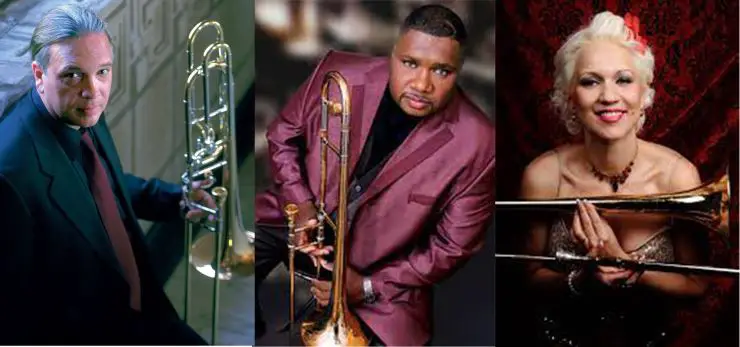Why Are Most Trombone Players Male
The music industry is certainly not an exception to this male-dominated society, and this is especially true. One of the most popular musical instruments in the world is the trombone, which has been around for many years.However, it is rare that we come across a female trombonist. Is this due to the fact that males are better or more proficient trombonist? nAlternatively, is it a stereotypically male instrument that is best suited to physically fit, strong men?
Is it possible that the old adage – “what a man can do, a woman can do better” has been proven incorrect in the case of female trombone players. No, I don’t believe that is the case. In a variety of industries, women have already been spotted taking up traditionally male-dominated positions. Although the passage of time has brought about changes in many aspects of life, Trombone playing remains one of them.
Let us investigate the various reasons why most trombone players are male:
Cultural preconceptions and social conditioning
This may play a significant role in the underrepresentation of female trombonists. The concept that ladies perform on instruments such as the piano, flute, violin, harp, and so on, whereas males perform on instruments such as the tuba, trombones, saxophone, trumpets and so on.
Another possible explanation for the higher proportion of male trombone players is their physical strength.
Certain instruments, such as flutes, are considered feminine due to their small size and high pitch, whereas a trombone is considered masculine due to its large size and low pitch. It takes a lot of strength to push and pull the slides of a trombone, which may explain why most females give up on trombone lessons because of the continual agony they experience and instead choose to learn to play another instrument that is simpler to play.
The fact that most people start to play an instrument while they are still children is another factor to take into consideration. Given that trombones are fairly large instruments; guys are frequently chosen for or encouraged to play them as instruments. This is partly due to the fact that humans are sexist, but it is also due to practical considerations.
The larger children are assigned to the larger instruments. In terms of lung capacity, but also in terms of simply physically holding the instrument, this is a significant limitation. There is one semi-rational reason to encourage males (or taller girls) to learn to play the trombone: shorter people have shorter arms, and it is difficult or impossible for a short person to reach the outer locations, particularly the seventh position, on the instrument’s scale.
When the trombone was first introduced, it was widely used in the military, thus it made sense for the women to stay at home and play the piano while the troops learned to use the bugle signal. Although it was made evident throughout time that women were not designed’ to play a brass instrument, it was also made clear that doing so made them appear exceedingly unattractive.
This could be related to people’s perceptions of the posture, which is undoubtedly quite masculine: the trombone is held straight out in front of you, blasting the sound directly at your audience.
The downward push of the clarinet, or the sideways peek of a flute, appear significantly less intimidating and far more ladylike in comparison. The harp allows you to discreetly waft your notes towards your listener.
Given the fact that well-known trumpeters such as Glenn miller and J.J Johnson are both male, it is understandable that fewer girls than boys are interested in following in their footsteps in the music industry. Due to the continued prevalence of this viewpoint, we find ourselves in a musical world where women account for only 3 percent of all brass players.
Although the trombone is a simple instrument, mastering it takes hours of practice, lip strengthening, and the development of lung capacity. While some may believe female performers do not possess the necessary strength to sustain a clear tone throughout a performance, it is important to note that one of the world’s most well recognized players is in fact a female performer.
As one of the most sought-after brass player in the world, Alison Louise Balsom has appeared on stages all over the world and has even been recognized with Grammy awards for her work in classical music.
Conclusion
Nonetheless, the stereotype is crumbling now, and the tide is turning in women’s favor. It is all about having an interest and a burning desire to do something. If you have a passion, you can achieve success in it regardless of your sexual orientation.







